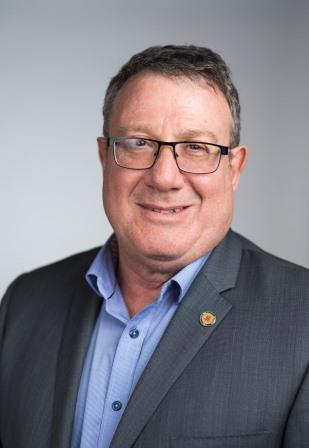Gavin Finkelstein is President, Haemophilia Foundation Australia
Throughout Australia we have experienced lockdowns due to COVID-19 at some time over the last year, and as I write this our staff at HFA and other Victorians have experienced another! Our lives have taken an unexpected turn because of the pandemic, but we see and hear some amazing stories of resilience and strength emerging from the resulting hardship.

We will continue to address the queries we have had from people with bleeding disorders about COVID-19 and having vaccinations and will provide any updated information on the HFA website. You should always discuss your concerns about COVID-19 or the vaccine with your treating doctor.
We have been working hard to improve your experience of our websites, e-news and social media platforms and hope you are enjoying some of the new content. If you wish to receive information and updates via email as soon as they are available, you can sign up to the HFA e-news at www.haemophilia.org.au/helpful/sign-up
You may have seen our new fact sheet, Sport and exercise for girls and young women with bleeding disorders. This was developed to answer questions from a survey of young women and their parents and we hope it will be helpful for young women and girls. Please make sure you let anyone in your family who might be interested. Read or download it from our youth website, Factored In.
Anecdotally we believe most people with hepatitis C in the bleeding disorders community have had their hep C cured. Many were treated with the new direct acting antiviral (DAA) treatment in recent years which had high cure rates, required tablets rather than injections and had few side effects. This has been life-changing for them.
We are working with the Australian Haemophilia Centre Director’s Organisation (AHCDO) to understand the current situation, and to explore how we might reach people who don’t know they have hepatitis C and could have treatment. These may be people with mild bleeding disorders who have not required much medical intervention over the years. Sadly, there are some people whose treatment was not successful or the new treatments were too late to help them and they have developed liver disease.
Even if you have cleared hep C, you may need to have your liver health monitored. Ask your hepatitis specialist or GP if you need follow-up for your liver health. For example, if you have cirrhosis and have successful treatment, you will still need ongoing care of your liver. It is easy to overlook these checks, especially if you are feeling well, so I urge you to make a plan with your medical team so you don’t overlook this – and spread the message to others.
Haemophilia Foundation Australia acknowledges the Traditional Owners and Custodians of Country throughout Australia, the land, waters and community where we walk, live, meet and work. We pay our respects to Elders past and present and extend that respect to all Aboriginal and Torres Strait Islander peoples.
Sign up for the latest news, events and our free National Haemophilia magazine